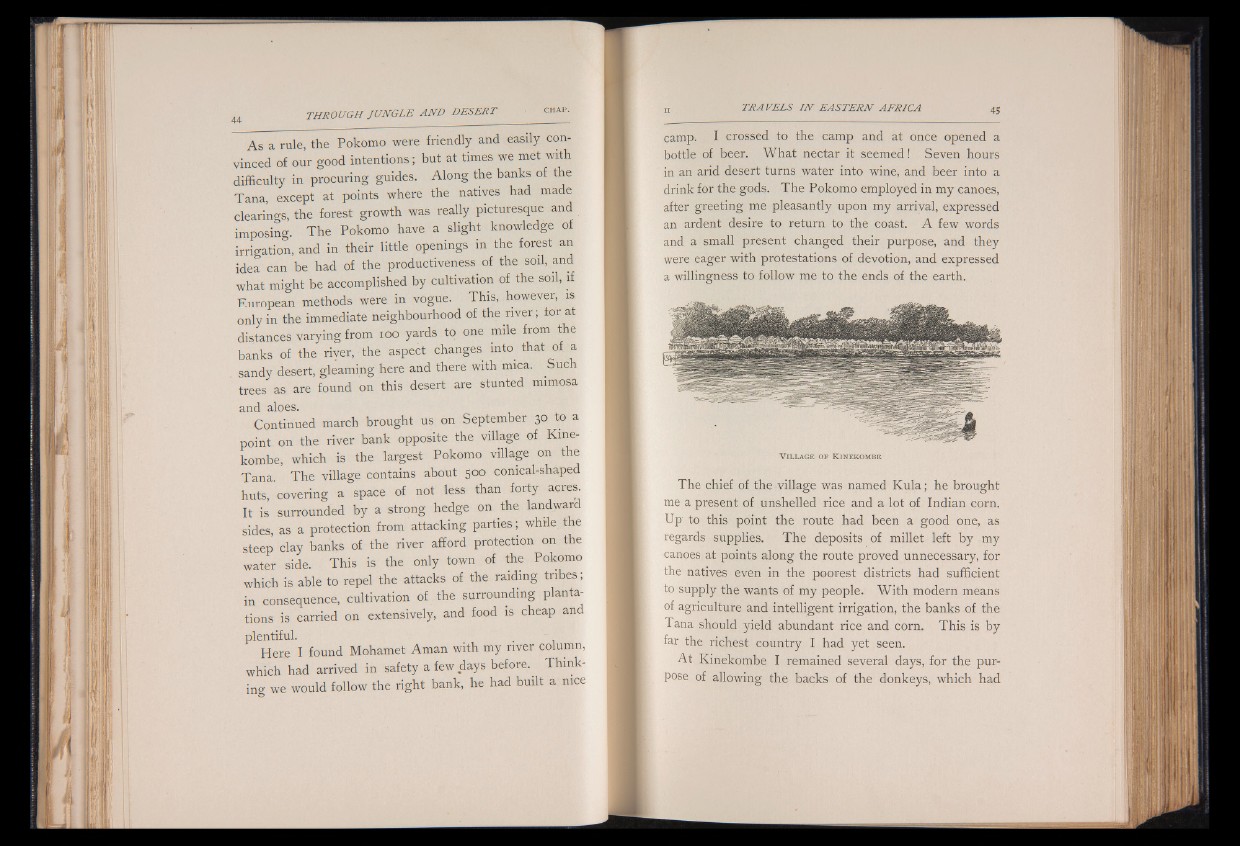
As a rule, the Pokomo were friendly and easily convinced
of our good intentions; but at times we met with
difficulty in procuring guides. Along the banks of the
Tana, except at points where the natives had made
clearings, the forest growth was really picturesque and
imposing. The Pokomo have a slight knowledge of
irrigation, and in their little openings in the forest an
idea can be had of the productiveness of the soil, and
what might be accomplished by cultivation of the soil, if
European methods were in vogue. This, however, is
only in the immediate neighbourhood of the river; for at
distances varying from 100 yards to one mile from the
banks of the river, the aspect changes mto that of a
sandy desert, gleaming here and there with mica. Such
trees as are found on this desert are stunted mimosa
and aloes.
Continued march brought us on September 30 to a
point on the river bank opposite the village of Kine-
kombe, which is the largest Pokomo village on the
Tana. The village contains about 500 conical-shaped
huts, covering a space of not less than forty acres.
It is surrounded by a strong hedge on the landward
sides, as a protection from attacking parties; while the
steep clay banks of the river afford protection on the
water side. This is the only town of the Pokomo
which is able to repel the attacks of the raiding tribes;
in consequence, cultivation of the surrounding plantations
is carried on extensively, and food is cheap and
plentiful.
Here I found Mohamet Aman with my river column,
which had arrived in safety a few days before.^ Thinking
we would follow the right bank, he had built a nice
camp. I crossed to the camp and at once opened a
bottle of beer. What nectar it seemed! Seven hours
in an arid desert turns water into wine, and beer into a
drink for the gods. The Pokomo employed in my canoes,
after greeting me pleasantly upon my arrival, expressed
an ardent desire to return to the coast. A few words
and a small present changed their purpose, and they
were eager with protestations of devotion, and expressed
a willingness to follow me to the ends of the earth.
V i l l a g e o f K in e k o m b e
The chief of the village was named K ula ; he brought
me a present of unshelled rice and a lot of Indian corn.
Up to this point the route had been a good one, as
regards supplies. The deposits of millet left by my
canoes at points along the route proved unnecessary, for
the natives even in the poorest districts had sufficient
to supply the wants of my people. With modern means
of agriculture and intelligent irrigation, the banks of the
Tana should yield abundant rice and corn. This is by
far the richest country I had yet seen.
At Kinekombe I remained several days, for the purpose
of allowing the backs of the donkeys, which had